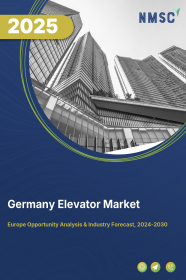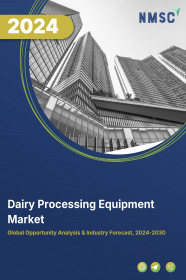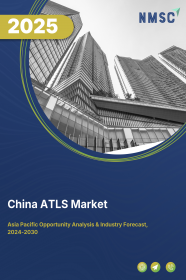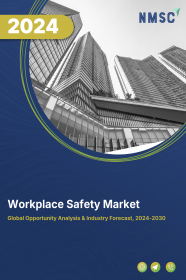
Germany Elevator Market by Type (Passenger elevator, Freight elevator and Others), by Technology (Traction and Hydraulic), by Service (New Installation, Maintenance and Modernization), by Capacity (Less than 1500 kg, 1500 to 2500 kg, 2501 to 4000 kg and More than 4000 kg) by Speed (Less than 1 M/S, Between 1 to 4 M/S and More than 5 M/S), by Deck type (Single Deck and Double Deck) and Others- Opportunity Analysis and Industry Forecast, 2024 –2030
Industry: Construction & Manufacturing | Publish Date: 15-Feb-2025 | No of Pages: 129 | No. of Tables: 95 | No. of Figures: 60 | Format: PDF | Report Code : CM1615
US Tariff Impact on Germany Elevator Market
Trump Tariffs Are Reshaping Global Business
Market Definition
Germany Elevator Market size was valued at USD 3.63 billion in 2023, and is predicted to reach USD 5.23 billion by 2030, at a CAGR of 4.3 % from 2024 to 2030. The elevator market represents a dynamic sector encompassing the design, manufacturing, installation, and maintenance of elevator systems. From conventional traction elevators to cutting-edge smart solutions, this market offers a diverse array of vertical transportation choices customized to suit the distinct requirements of various buildings and infrastructure projects. Stakeholders within the elevator market include manufacturers, suppliers, contractors, architects, building owners, and facility managers.
Manufacturers continuously innovate to enhance elevator performance, safety, and sustainability, while suppliers provide critical components and materials necessary for system construction. Additionally, sustainability considerations, including energy efficiency and material recyclability, are increasingly integral to elevator design and operation. They align with broader environmental objectives and sustainable building practices. Thus, the elevator market is a cornerstone of vertical mobility as elevators enhance functionality, accessibility, and sustainability within buildings and urban landscapes worldwide.
Robust Urbanization is Fuelling the Growth of the Market
Rapid urbanization within the region is driving the growth of the elevators market. In Germany, as of 2023, urban areas accounted for 77.8% of the total population, highlighting the significant urbanization trend in the country. This demographic shift underscores a growing demand for vertical mobility solutions, prominently including elevators. With urbanization continually reshaping the country's landscape, the necessity for efficient transportation within high-rise buildings, commercial complexes, and residential towers is becoming increasingly paramount.
As cities evolve and expand, the integration of advanced elevator systems becomes essential to ensure seamless vertical mobility and enhance overall accessibility and convenience for residents and visitors alike. Thus, elevators play a pivotal role in facilitating the smooth functioning of modern urban environments in Germany.
Surging Construction Sector Drives the Growth for Elevators Market
The elevator market in the Germany has seen impressive growth, driven by a remarkable increase in new construction projects and renovation activities across the country. The construction boom encompasses various sectors such as residential, commercial, and industrial, leading to a heightened demand for elevators. The urban landscape of the Germany is witnessing the emergence of high-rise buildings, commercial complexes, and residential towers, necessitating elevators for vertical transportation.
Renovation efforts aimed at upgrading existing buildings also contribute to the demand for elevators. With a focus on modernizing infrastructure and improving building accessibility, elevator installation and modernization projects have become integral parts of renovation initiatives. The demand for new housing, estimated at around 340,000 new homes per year in England according to research by the National Housing Federation (NHF) and Crisis from Heriot-Watt University, further drives the need for elevators in residential complexes and multi-story dwellings. The growth of the elevator market in the Germany is intertwined with the construction and renovation sectors. As the construction industry flourishes, the demand for elevators is expected to continue growing steadily, reflecting a robust and expanding industry landscape.
The Integration of Artificial Intelligence (AI) in Elevator Creates Future Opportunity Growth
The integration of AI-driven predictive maintenance in the elevator industry presents a highly profitable prospect, revolutionizing maintenance and operational strategies through AI technology. By analyzing data gleaned from elevator sensors, AI algorithms can anticipate maintenance requirements in advance, minimizing downtime and maximizing elevator availability. This proactive approach not only prolongs the lifespan of elevator components but also enhances safety by averting unexpected malfunctions and optimizes resource utilization, resulting in substantial cost reductions for elevator firms. Additionally, well-maintained elevators bolster user satisfaction, thereby enriching the overall experience for building occupants and visitors. Embracing AI-driven predictive maintenance empowers elevator companies to stay competitive and uphold service excellence in an ever-changing market environment.
Extensive Initial Costs Obstruct Market Growth Across the Region
The significant costs associated with elevator installations, maintenance, and upgrades present notable hurdles to market expansion. The initial investment needed to install elevator systems, especially in buildings not originally designed for such infrastructure, can place a substantial financial burden on building owners and developers.
Additionally, ongoing expenses related to maintenance contracts, which entail regular inspections and repairs, contribute to overall ownership costs. Moreover, the need for modernization to adhere to updated safety standards and enhance energy efficiency exacerbates the financial strain. These expenditures can be particularly daunting for building owners in regions with limited financial resources or older buildings where retrofitting elevators is complex and costly. Consequently, the heightened costs associated with elevators restrain market expansion, impacting growth prospects across various regions.
Competitive Landscape
The Germany elevator market comprises various market players, such as Schindler, Otis Elevator Company, TK Elevator (TKE), KONE Corporation, Fujitec Co. Ltd, Brobeil Aufzuge GmbH & Co. KG, Lift Reith GmbH & Co. KG, Toshiba Corporation, Aufzuge mit Herz GmbH, KOHLER Elevator GmbH and others.
Germany Elevator Market Key Segments
By Type
-
Passenger elevator
-
Freight elevator
-
Others
By Technology
-
Traction
-
Machine Room [MR] Traction
-
Machine Roomless [MRL] Traction
-
-
Hydraulic
By Service
-
New Installation
-
Maintenance
-
Modernization
By Capacity
-
Less than 1500 kg
-
1500 to 2500 kg
-
2501 to 4000 kg
-
More than 4000 kg
By Speed
-
Less than 1 M/S
-
Between 1 to 4 M/S
-
More than 5 M/S
By Deck Type
-
Single Deck
-
Double Deck
By Designation Control
-
Smart
-
Conventional
By Door Type
-
Automatic
-
Manual
By Application
-
Residential
-
Commercial
-
Industrial
REPORT SCOPE AND SEGMENTATION:
|
Parameters |
Details |
|
Market Size in 2023 |
USD 3.63 Billion |
|
Revenue Forecast in 2030 |
USD 5.23 Billion |
|
Growth Rate |
CAGR of 4.3 % from 2024 to 2030 |
|
Analysis Period |
2023–2030 |
|
Base Year Considered |
2023 |
|
Forecast Period |
2024–2030 |
|
Market Size Estimation |
Billion (USD) |
|
Growth Factors |
|
|
Companies Profiled |
10 |
|
Market Share |
Available for 10 companies |
|
Customization Scope |
Free customization (equivalent up to 80 working hours of analysts) after purchase. Addition or alteration to country, regional, and segment scope. |
|
Pricing and Purchase Options |
Avail customized purchase options to meet your exact research needs. |
KEY PLAYERS
-
Schindler
-
Otis Elevator Company
-
TK Elevator (TKE)
-
KONE Corporation
-
Fujitec Co. Ltd
-
Brobeil Aufzuge GmbH & Co. KG
-
Lift Reith GmbH & Co. KG
-
Toshiba Corporation
-
Aufzuge mit Herz GmbH
-
KOHLER Elevator GmbH

















 Speak to Our Analyst
Speak to Our Analyst




















